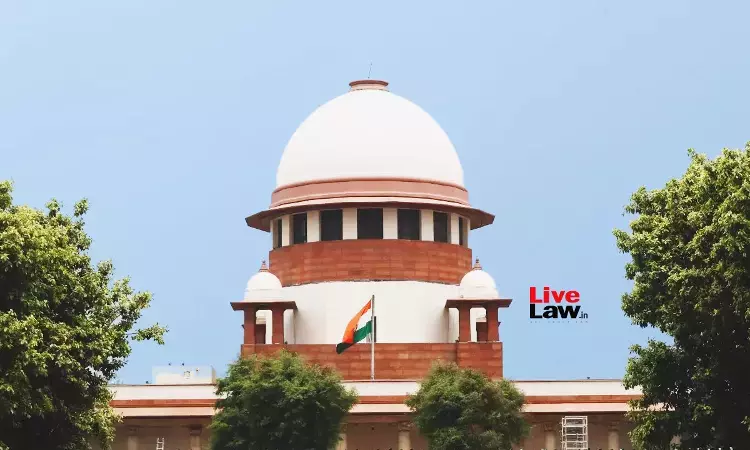Mohammedan Law | Muslim Widow With No Child Entitled To 1/4th Share In Deceased Husband's Estate : Supreme Court
Yash Mittal
17 Oct 2025 3:48 PM IST

The Supreme Court affirmed the Bombay High Court's decision that had denied a Muslim widow a 3/4th share in her late husband's estate. The Court said that the widow, a Muslim wife having no child, is entitled to receive only 1/4th share.
Further, the Court clarified that a mere agreement to sell executed by the deceased's brother could not defeat the widow's inheritance rights, since such an agreement neither transfers nor extinguishes ownership.
The case concerned the estate of one Chand Khan, who died intestate and childless. His widow, Zoharbee(appellant), claimed entitlement to three-fourths of the property, contending that under Mohammedan law she was the primary heir. The respondent, the deceased's brother, argued that a portion of the land had already been transferred through an agreement to sell executed by the deceased during his lifetime, and thus should be excluded from the inheritance pool. The trial court accepted this contention, but the appellate court and the High Court reversed that view, holding that the agreement to sell did not create any ownership rights.
However, the widow took the matter to the Supreme Court, claiming 3/4th share.
At the outset, the Supreme Court observed that under Section 54 of the Transfer of Property Act, an agreement to sell does not, by itself, convey title in immovable property. Since no registered sale deed was executed, the ownership remained with the deceased until his death, making the land part of the matruka property to be divided among heirs.
The bench, comprising Justices Sanjay Karol and Prashant Kumar Mishra, engaged in a detailed discussion on the concept of matruka and succession under Mohammedan law. Referring to authoritative texts such as Mulla's Principles of Mahomedan Law, the Court explained that matruka encompasses all movable and immovable property left behind by a Muslim at the time of death. Before distribution, any valid bequests up to one-third of the estate and the deceased's debts are to be satisfied. The remaining property is then distributed among heirs according to the fixed shares prescribed in the Qur'an.
The Court noted that under Chapter IV, Verse 12 of the Qur'an, a widow's share is one-fourth of her husband's property if there are no children or descendants, and one-eighth if there are. In the present case, since Chand Khan died without children, his widow was entitled to one-fourth of the matruka, with the remaining share devolving upon the other heirs, including his brother. By reaffirming these principles, the Court underscored that inheritance under Mohammedan law is based on predetermined Qur'anic shares that leave little room for discretion, ensuring both certainty and equity among heirs.
Dismissing the widow's plea, the Judgment authored by Justice Karol affirmed her right to inherit under Mohammedan Law but clarified that the matruka property (estate left by a deceased Muslim) must be distributed among the legal heirs strictly in accordance with Islamic inheritance rules. Where a widow is left without any child or grandchild, she is entitled to a one-fourth share; however, if the deceased is survived by a child or grandchild, the widow's entitlement is reduced to one-eighth.
“Muslim Law of inheritance depicts that the sharers are entitled to a prescribed share of the inheritance and wife being a sharer is entitled to 1/8th the share but where there is no child or child of a son how low so ever, the share to which the wife is entitled is 1/4th.”, the Court said.
Also from the judgment- Supreme Court Deplores Poor English Translation Of Trial Court Judgment; Calls For Greater Care
Cause Title: ZOHARBEE & ANR. Versus IMAM KHAN (D) THR. LRS. & ORS.
Citation : 2025 LiveLaw (SC) 1014
Click here to read/download the judgment
Appearance:
For Appellant(s) : Mr. Ajay Majithia, Adv. Mr. Shekhar Kumar, AOR
For Respondent(s) : Mr. Sudhanshu S Choudhari, Sr. Adv. Mr. Vatsalya Vigya, AOR Ms. Gautami Yadav, Adv. Ms. Pranjal Chapalgaonkar, Adv. Mr. Yash Singhania, Adv.


